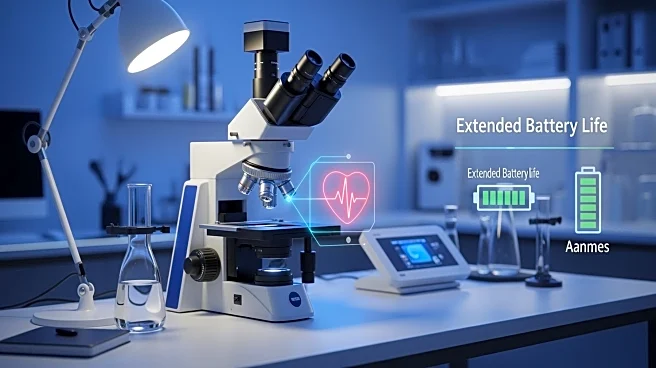What's Happening?
Meta has introduced the Aria Gen 2, a new augmented reality (AR) device designed specifically for research labs. The device features a photoplethysmography (PPG) sensor for heart-rate monitoring, a contact
microphone, and Meta’s custom silicon, offering up to 8 hours of battery life. This development is significant for labs conducting long-term wearable studies, as it allows for continuous biometric data collection without the need for additional external devices. The Aria Gen 2 aims to transition AR from proof-of-concept trials to sustained physiological research. However, the introduction of these capabilities also raises concerns about privacy and consent, as the device can capture biometric data invisibly in public settings.
Why It's Important?
The Aria Gen 2 represents a significant advancement in AR technology, particularly for research applications. By integrating a PPG sensor, the device simplifies study logistics and enhances data fidelity, which is crucial for research on attention, mobility, and accessibility. The ability to conduct longer sessions without device mismatches can accelerate the development of on-body AI models. However, the rapid adoption of such technology also compresses the timeframe for ethical review and consent processes, posing challenges for researchers, regulators, and participants. Privacy advocates have expressed concerns about the potential for invisible biometric data capture, highlighting the need for clear consent mechanisms and data-use transparency.
What's Next?
As the Aria Gen 2 becomes available to more research labs in the coming months, it is expected to influence the design of research protocols and consent processes. Institutional Review Boards (IRBs) may need to update guidelines for wearable technology studies to address the new privacy and ethical considerations. Vendors might bundle physiological analytics with the device, and there will likely be increased scrutiny from journalists and privacy advocates regarding data usage. Researchers will need to consider how to secure participant trust while leveraging the device’s capabilities for their studies.
Beyond the Headlines
The introduction of the Aria Gen 2 could lead to broader discussions about the ethical implications of biometric data collection in public spaces. As AR technology becomes more integrated into everyday life, there may be a need for new regulations to protect individual privacy and ensure informed consent. The device’s ability to capture physiological data invisibly could also spark debates about the balance between technological innovation and personal privacy rights.










